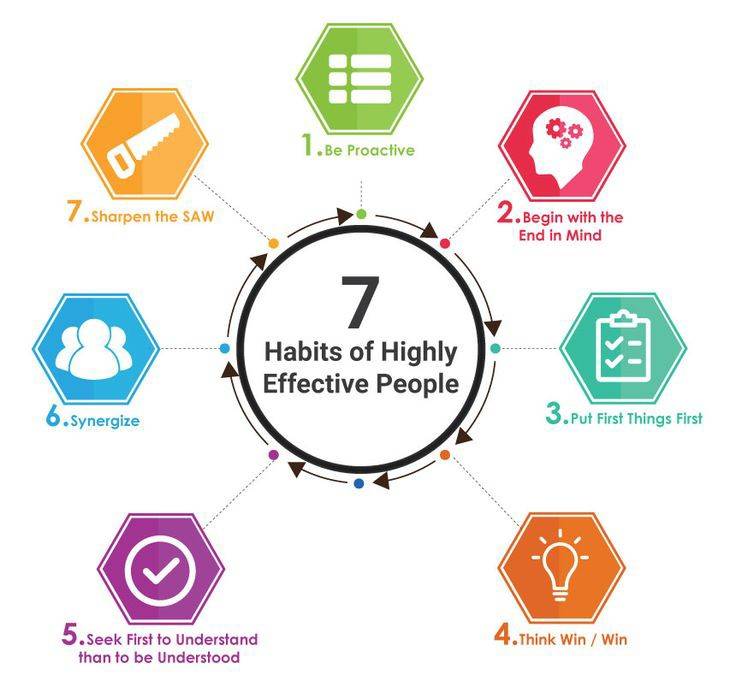- 7 Habits of a Highly Valued Person:
In both personal and professional settings, certain habits distinguish highly valued individuals from the rest. These people are known not only for their skills and accomplishments but also for their positive influence on others. Being highly valued isn’t just about success or intelligence; it’s about building habits that consistently add value to others' lives and to any environment they enter. Here are eight habits that define a highly valued person.
1. Authentic Communication
Highly valued people communicate authentically, meaning they’re honest, clear, and considerate in their conversations. They know how to share ideas openly while respecting others’ perspectives. This habit builds trust and rapport, and it encourages others to be authentic as well. Authentic communication doesn’t just mean speaking the truth but also listening actively and responding thoughtfully.
Why it matters: Authentic communication strengthens relationships and establishes a reputation for reliability and transparency.
2. Commitment to Growth
Personal growth is a lifelong journey, and highly valued individuals are committed to it. They seek opportunities to learn, whether through books, workshops, experiences, or even mistakes. They embrace challenges as a chance to grow rather than a threat, and they don’t shy away from constructive feedback.
Why it matters: People who are committed to growth tend to inspire others, adapt to change more effectively, and bring fresh ideas to the table.
3. Dependability
Being dependable means others can trust you to follow through on your commitments. Highly valued people understand the importance of meeting deadlines, keeping promises, and showing up when they’re needed. This habit builds a reputation that speaks for itself—one of reliability and trustworthiness.
Why it matters: Dependability is the backbone of team success, relationship trust, and effective collaboration.
4. Empathy and Compassion
Empathy is the ability to understand and share the feelings of others, while compassion is the drive to act on that understanding. Highly valued individuals practice both, creating a supportive environment for everyone around them. They are often the first to notice when someone needs help,o and they’re quick to offer a listening ear or a helping hand.
Why it matters: Empathy and compassion foster a positive culture, reduce conflicts, and strengthen relationships.
5. Proactive Problem Solving
Instead of merely pointing out issues, highly valued people are solution-oriented. They anticipate challenges and proactively work to address them, often going out of their way to prevent potential problems. When obstacles do arise, they stay calm, analyze the situation, and think of constructive ways to move forward.
Why it matters: Proactive problem-solving shows initiative, inspires confidence in others, and helps prevent unnecessary setbacks.
6. Adaptability
The ability to adapt to changing circumstances is crucial in today’s fast-paced world. Highly valued individuals are resilient and flexible, adjusting their approach when necessary without getting discouraged. They view changes and challenges as opportunities rather than hindrances, which enables them to thrive in various environments.
Why it matters: Adaptability enables individuals to stay relevant, cope with uncertainty, and contribute effectively regardless of the circumstances.
7. Gratitude and Recognition
Highly valued people understand the power of gratitude and make it a habit to express appreciation to those around them. They regularly recognize the efforts and achievements of others, creating a supportive and uplifting environment. By showing gratitude, they not only strengthen their own well-being but also help others feel valued and motivated.
Why it matters: Gratitude fosters a positive culture, strengthens relationships, and improves morale for both the individual and the group.
8. Integrity
Integrity is the cornerstone of any highly valued individual’s character. People with integrity are honest, ethical, and transparent in their actions. They uphold their principles, even when it’s difficult or inconvenient, and they hold themselves accountable for their actions. Integrity is more than just telling the truth—it’s about acting in a way that’s consistent with one’s values and beliefs.
Why it matters: Integrity builds trust, sets a positive example, and establishes a strong foundation
The habits of a highly valued person aren’t necessarily about talent or skill level—they’re about character, mindset, and the actions that consistently add value to others. Cultivating these habits can lead to meaningful personal growth and create a lasting positive impact on the people and communities we engage with. By focusing on authenticity, growth, dependability, empathy, proactive problem-solving, adaptability, gratitude, and integrity, we can all strive to become individuals who are truly valued by others.
Thanks for reading 📚
MOÃSE




No comments yet
Be the first to share your thoughts!